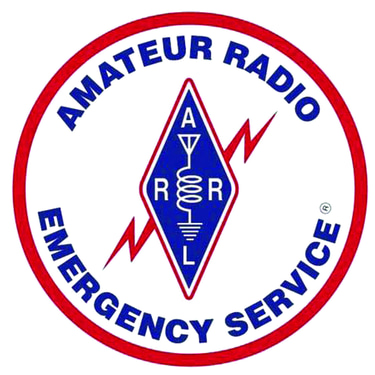When The Lights Go Dark: Emergency Communications Options in the Inland Northwest
Frank E Hutchison, AG7QP/WRDI529
9/30/20242 min read
Imagine that you are suddenly without power - no lights, electricity or internet - Cell phones don't work and your land line is dead or unavailable. How can you communicate with anybody or call for help?
You have options - but you need to know and understand what your options are and the limitations of each option.
First of all, I would urge you to have some type of auxiliary backup/emergency power source because all options for emergency communications - except directly speaking to someone - require power. There are many options and you should find one that works for you but, at the minimum, you should be able to recharge your cell phone(s) and provide power for essential equipment.
Next, remember that you are not alone - there will be others who are in the same situation. There's rarely a situation where the best approach is "every one for themself." Work with your neighbors, co-workers, church members, whoever to deal with whatever situation you are in.
Okay, now for the options for communicating in an emergency. I'm focusing on radio communication - I realize there are options for satellite internet and phone services, but they are generally expensive and beyond what most people would have.
Family Radio Service (FRS): Radios in this category can be obtained at most any Walmart, Amazon, or outdoor store. These radios come in a "bubble pack" and are self-contained. Usually powered by AA or AAA batteries (keep extras on hand). They usually have 16 channels. They have a range of approximately 1-2 miles. They do NOT require a license to operate. They are good for communicating within your neighborhood.
General Mobile Radio Service (GMRS): Radios in this category can be obtained on Amazon and at radio stores such as Ham Radio Outlet or DX Engineering - Google is your friend here in locating options. These radios require an FCC license that costs $35 but there is no exam. The license also covers your family members from grandparents to grandchildren. These radios use the same channels as FRS plus they have additional channels, they can use repeaters to extend their range and they can radiate more power.
Citizens Band (CB): Radios in this category can be obtained on Amazon as well as radio stores. No license is required and it remains a viable emergency communications option, however, it's use in Spokane County is not as great as GMRS and Amateur radios.
Amateur Radios: These radios require an FCC license ($35) and there are exams. Yes, exams because there are three levels - Technician, General and Amateur Extra - with increasing rights. Most people get the Technician License which gives you the right to operate mainly VHF and UHF radios which are the primary radios used in local emergency communications. The exams are administered locally and are based on published exam question banks - you have access to all the questions and the answers. There are many sources of help to study for the exams. See Licenses. Then there is High Frequency (HF) radio options. These require a General or Extra class license but can reach beyond the local area and even around the world. These are more complex and expensive than the radio setups used for local communications.
EmComm
Your source for emergency communication information in the Inland Northwest.
Administrator
Frank E Hutchison
AG7QP/WRDI529
509-434-4880
© 2025. All rights reserved.
